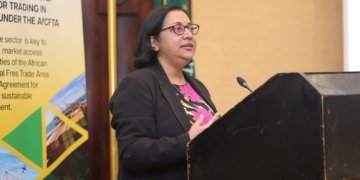President Bola Ahmed Tinubu has announced a 5% tax on fossil fuel purchases starting Jan. 1, 2026, as part of a government push to promote sustainability and reduce the country’s reliance on oil.
The policy is expected to generate revenue for infrastructure development while steering consumers toward cleaner energy alternatives.
Exemptions will apply to household kerosene and renewable energy sources in an effort to protect low-income households and encourage investment in greener options.
Under the new tax law, Nigerians will pay 500 naira (about $0.38) for every 10,000 naira (about $7.70) spent on petrol at current exchange rates.
Critics, however, warn the move could worsen economic hardship in a country already grappling with inflation, high unemployment and rising fuel prices following the removal of fuel subsidies in 2023.
Transportation operators and small business owners are expected to feel the brunt of higher costs, which could ripple through the wider economy.
Analysts say the fuel levy highlights Tinubu’s attempt to balance fiscal reforms with environmental goals, but they caution that public pushback could be significant if the government does not roll out measures to cushion the impact on households and businesses.
LAGOS, Nigeria – Bantu Gazette





























